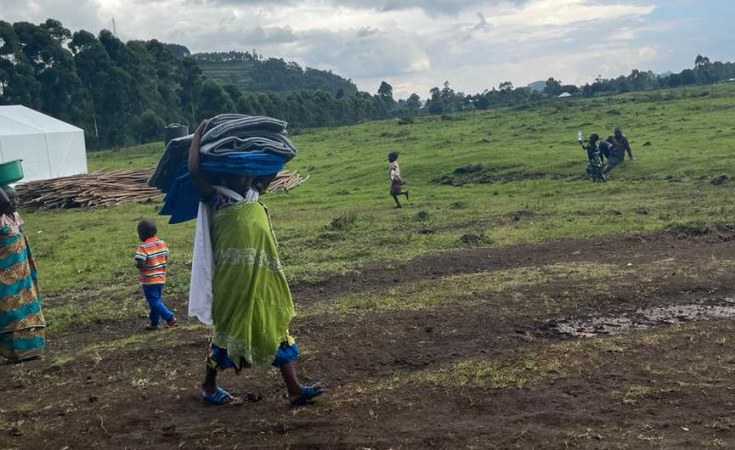For long, the Isingiro to Rakai Kyotera via Nakivale road has been in the budget for different financial years for it to be upgraded to tarmac but the financial years end without its rehabilitation.
The 108-km thoroughfare serves as a vital artery connecting the banana-producing region of Isingiro, where trucks laden with matooke traverse to Mbarara and onward to Kampala.
Additionally, more than 50 humanitarian organisations responsible for the well-being of refugees in the Nakivale refugee settlement frequently utilse this route.
Humanitarian agency employees that the Nile Post spoke to and preferred anonymity said that they are often delayed with the bumpy dusty road during the dry spell and muddy during the rainy season.
The bumpy ride also causes fatigue and tiredness and body pains arguing that if tarmacked, the time spent moving on the current road would be reduced by triple.
John Twinamatsiko, a seasoned Fuso driver who traverses this route regularly to transport bananas from Isingiro to Kampala via Mbarara, encounters difficulties maneuvering through the rugged and constrained road.
"I have to race against time and travel early so that it doesn't get dark before I am on the tarmac from Isingiro to Mbarara," Twinamatsiko said.
Driving on the road, he says, is very tricky due to the rough terrain as one can only keep in the middle lest they overturn.
In an interview with Nile Post, Edward Mujuni, a Fuso driver, recounted an incident on the identical route, describing his harrowing experience navigating the dusty and uneven Isingiro-Nakivale road.
"While I dodged a Toyota Wish that was speeding from Isingiro town side as I transported bananas from Rugaaga, I lost control and incurred losses, I lost over Shs7 million," Mujuni said.
As we embarked on our journey, we came across two Fuso trucks transporting matooke that had been in a collision.
Yassin Mugerwa, a Fuso driver, said it was the second time he had encountered an accident on that particular route.
"While we navigated to overtake this Fuso, we hit each other and we both lost control," Mugerwa said.
"My tires have got punctured, I have to replace my shock absorbers almost every three months and I do service every two days because the road is so bad," Darius Muhwezi, a taxi driver, said.
According to the Isingiro District Chairman, Alone Turahi, the district is not sitting on its hands.
"We wrote to the roads authority so that this road should be under maintenance at least every quarter, because there are so many trucks transporting matooke that use it," he said.
Turahi acknowledges the busy traffic on the road despite it being untarmacked.
"Over 100 lorries transporting matooke from Ngarama, Rugaaga, Rushsha among other areas and humanitarian agency vehicles and buses use the road to and from Nakivale refugee settlement but we have had it not considered worked on" Turahi said.
"I know our area MPs have had an engagement with the engineers from the Ministry of Works and designs have been drawn so anytime we could have that road tarmacked although I have not seen the road in the budget for the Financial Year 2024/2025," Turahi said.
The Isingiro-Ntantamuki-Rakai route, passing through Nakivale, was established in 2021 and is projected to be finalised by the year 2030.
In September 2021, Prime Minister Robinah Nabbanja publicly announced that the government had plans to improve this road to class II bitumen standard, with culverts, shoulders and drainage channels.
She did not give the timeline for the planned improvements, but she stated that the road would have been put on the improvement list, but those plans were interrupted by the COVID-19 pandemic.
"As soon as COVID-19 comes under control, this road goes back on the improvement list," Nabbanja said.
It's been three years since no works have commenced on the road.


